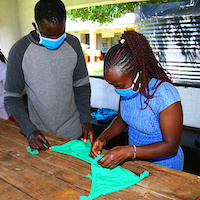A budget for today — but what about tomorrow?
16 October 2013
There’s been a lot of comment about the Irish Government’s decision to cut the overseas aid budget for the sixth year in a row. But two points in particular stand out. Firstly, at the start of this century Ireland signed onto the global contract to eradicate extreme poverty by 2015. In support of the Millennium Development Goals (eight international development goals that all 193 United Nations member states have agreed to achieve by the year 2015), Ireland pledged to increase its overseas aid so that it would reach the UN target of spending 0.7 per cent of national income on overseas aid. That point is especially important because it leads to others. For example, 2015 is not far away. Will we break our promise? There’s an economic as well as moral argument here, too. The achievement of the Millennium Development Goals is a stated objective of Irish foreign policy, in part because it will help to promote stability and prosperity in the developing world. And our overseas aid programme is - or should be - spent on policies that could help to bring about that more stable, more prosperous world. Why? Partly because in the longer term that approach will benefit us. Ireland is, as Dóchas director Hans Zomer has pointed out, a small country in a globalized world. The trade links development promotes could eventually benefit us and our standing in the wider world. The second point is one that we have made many times - possibly because we always can: there is overwhelming public support in Irish society for overseas aid. This is a wonderful comment on the generosity of the Irish people, who clearly, as Zomer puts it, “feel strongly about our tradition, and our obligations towards those less fortunate than ourselves”. It’s a generosity that we at Friends of Londiani have good reason to be grateful for when we meet and train Irish Harambee volunteers and receive public donations. It would be nice if our government could at least try to match that generosity.

